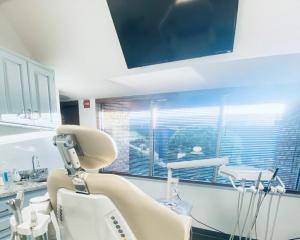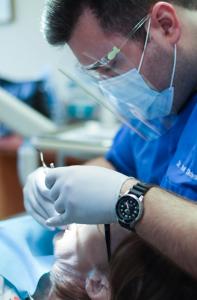Dental implants replace damaged or missing teeth with artificial ones that look and function like natural ones.
NORTH RICHLAND HILLS, TEXAS, UNITED STATES, May 7, 2023/EINPresswire.com/ — Dental implants can replace a single tooth, several teeth, or complete dentures. Implants replace the natural roots of the teeth with artificial ones, titanium-screwed metal cylinders. Titanium is one of the most bio-compatible materials that can bond to the bone. Dental implants are an ideal alternative to dentures or dental bridges that cause problems or do not fit properly and provide solutions when the lack of natural tooth roots does not allow the placement of fixed prosthetic work.
Implants can support a bridge, or a denture, to give better stability. Dental implants function, feel and look like natural teeth. When a bridge is not an option, implants provide a modern alternative. The implant consists of three parts – the implant device itself (inserted directly into the bone), the abutment – the piece connecting the implant device to the third part – the overlying crown or denture. Implants can offer ‘grips’ to stabilize the dentures.
The teeth of an entire dental arch can be replaced with implant-supported bridges, known as an overdenture. This results in improved comfort, stability, chewing force, and increased speaking confidence without needing overnight removal. Implants require healthy, dense bones for maximum stabilization. In most cases, a bone graft helps the healing and ensures a denser underlying bone. Once healed, a titanium post is placed into the jaw bone for better stability.
Once this healing process and bonding end, a tooth replacement or any other desired attachment can be used and. Dental implant surgery happens in stages, with healing time between procedures. The procedure includes the removal of damaged teeth, jawbone preparation with bone grafts if needed, and dental implant placement. A significant portion of the whole process is on healing and growing new bone in the jaw.
There are several reasons to choose dental implants over other prosthetic work. Implants replace the roots of missing teeth, do not move, or cause bone damage, as is usually the case with tooth-root-supported bridges. The adjacent, healthy teeth are not affected as with bridges. A lesser-known problem associated with tooth loss is “bone atrophy,” of the jawbone. It not only affects jaw function but can cause adverse facial aesthetic changes.
The implants offer an effective solution to such problems. Implants improve aesthetic appearance without looking like artificial teeth. They improve poor speech caused by badly-fitting dentures and increase self-esteem. Implants have no disadvantages compared to other prosthetic work for tooth loss. The implant treatment is tailored to the patient’s case. Implants may be the perfect solution for complete mouth restoration.
If a patient has lost more than one tooth but still has healthy gums and surrounding teeth, dental implants solve the problem. Two or more implants are used, and a bridge covers the gaps between the implants, thus leaving the natural adjacent healthy teeth intact. When a tooth is missing due to an accident, tooth decay, or periodontal disease, then an implant can fill its gap. The implant will look and function just like the rest of the natural teeth.
Over 95% of patients can have safe implant placement. Patients can get implants if the development of jawbones is complete, has healthy oral tissues, and has no other health issues that can affect bone healing. Implants are not recommended: for patients facing serious health problems such as diabetes, who have recently undergone chemotherapy, who have a weak immune system, or osteoporosis, who had a heart attack, who suffer from bruxism (teeth grinding), or who are heavy smokers. These conditions affect bone quality and the ability to heal, as tissues take longer to heal after implants are intact. In any case, on the first appointment, patients need to inform the dentist about their medical history.
The success rate of implants is 98% in the first five years, while after 15 years, the rate ranges from 82-95%, according to data from the American Academy of Implant Dentistry (AAID). The high success rates depend on the comprehensive planning of the surgery and the prosthetic restoration. Implants can last permanently, depending on how patients care for their implants and their oral health. With proper care, implants can last forever and improve the patient’s quality of life.
About
Dr. Yuri Sirotinski is a New York University College of Dentistry graduate and an alumnus of the prestigious Kois Center and devoted to advanced dental training in restorative, cosmetic, and implant dentistry. Dr. Sirotinski and his Dental Group offer their patients the highest quality dental care in the North Richland Hills community for over 40 years and provide the latest on dental implants and restorative dentistry technology. Replace your missing and broken teeth with top-quality customized dental implants from our professional dental group.
###
Visit our site www.rufesnowdental.com, to fill out the form for an appointment.
Yuri Sirotinski
Rufe Snow Dental Group
+1 817-281-1764
email us here
Visit us on social media:
Facebook
Instagram
YouTube
![]()
Originally published at https://www.einpresswire.com/article/632261904/dental-implants-a-revolutionary-solution-to-missing-teeth-problems
The post Dental implants: A revolutionary solution to missing teeth problems first appeared on Beauty Ring Magazine.
Beauty - Beauty Ring Magazine originally published at Beauty - Beauty Ring Magazine





